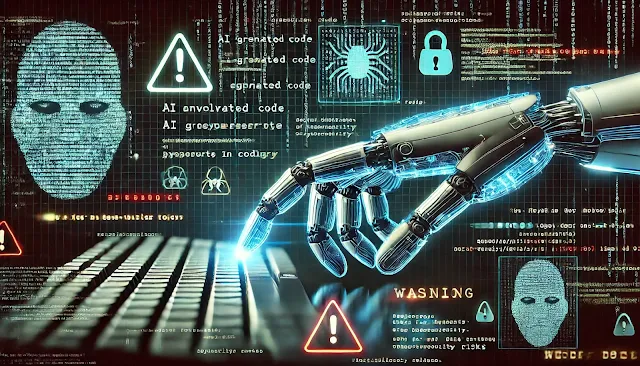What’s the Problem?
AI-generated code can be efficient and time-saving, but researchers have found that:
🔴 Many AI-generated scripts contain critical security flaws (e.g., buffer overflows, SQL injections, hardcoded secrets).
🔴 AI lacks deep contextual awareness, leading to risky shortcuts and insecure logic.
🔴 Developers trust AI too much, often using AI-generated suggestions without proper security reviews.
🔴 Hackers are now leveraging AI to automate attacks and find vulnerabilities faster than ever.
A recent study by leading security researchers tested AI-generated code snippets and found that up to 40% contained security vulnerabilities—many of which could be easily exploited.
Top Security Risks of AI-Generated Code
1. Insecure Code Suggestions 🔓
AI models predict code based on training data, not security best practices. This means:
✅ Vulnerable authentication logic
✅ Weak encryption techniques
✅ Hardcoded API keys or passwords
✅ Missing input validation
If developers blindly trust AI-generated code, they could unknowingly introduce critical security flaws into production environments.
2. AI’s Lack of Context 🤖❌
AI doesn’t always understand project-specific security requirements. A single missing security check or improper permission setting can lead to:
- Privilege escalation attacks 🚨
- Data breaches from misconfigured access controls 🔓
- Remote Code Execution (RCE) vulnerabilities
3. Automated Malware & Exploits 🚀
Cybercriminals are now weaponizing AI to:
⚠️ Automatically generate malicious scripts
⚠️ Find zero-day vulnerabilities faster
⚠️ Bypass security filters with AI-driven social engineering
Tools like ChatGPT, WormGPT, and FraudGPT are already being used on the dark web to automate cyberattacks.
4. AI Code Generators Can Be Manipulated 🎭
Researchers have demonstrated "AI prompt attacks", where hackers trick AI models into generating dangerous code by manipulating their input queries. This means attackers can:
✔️ Bypass security filters
✔️ Generate malware directly from AI
✔️ Find insecure AI-generated suggestions faster than defenders can patch them
How to Stay Secure When Using AI for Coding?
🔐 Never trust AI-generated code blindly – Always manually review and security test before deploying.
🔐 Use static & dynamic security analysis tools to scan AI-generated code for vulnerabilities.
🔐 Follow secure coding practices – Ensure input validation, proper authentication, and encryption are in place.
🔐 Limit AI-generated code usage in critical systems – AI should assist, not replace, human security expertise.
🔐 Educate developers about the risks of AI-generated vulnerabilities before they make it to production.

